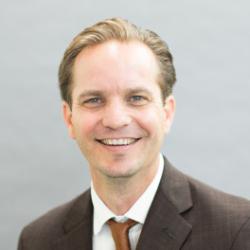Pope John XXIII was once asked how many people worked for the Vatican. “About half” he humorously replied, alluding to a workforce not known for its speed and efficiency. Under the pontificates of John Paul II and especially Benedict XVI, however, the Vatican seems to have made some efforts to improve the delivery of various services.
Take for example this interview with the city-state’s head physician, Dr. Giovanni Rocchi, who boasts of minimal waiting periods for patients at Vatican-run health clinics and laboratories. Such medical services are provided to Vatican employees and residents, including the Swiss Guard, local security officials, and the thousands of daily visitors to the Vatican.
Emergency treatment, Dr. Rocchi says, is immediate and often relies on its own ambulance service to transport the injured and sick. Clinical test results are typically received within 2-3 days. Major medical interventions such as heart or back surgery are usually arranged within a maximum of 2-3 weeks upon diagnosis, which is nothing compared to the purgatory Italian citizens must endure in the country’s public health care system for similar and even very minor treatments.
The Vatican’s health care system is small-scale, offering limited medical services such as emergency first aid, clinical analyses, immunization, physical check-ups, with much of the routine care provided by general practitioners. Major medical surgery must be arranged through outsourced medical facilities found in Rome’s private religious hospitals, like the Fatebenefratelli hospital located on the Tiber Island or the Gemelli hospital, which cared for Pope John Paul II on several occasions.Other examples of rapid improvement in efficiency can be seen in some of the Vatican’s other services. For example, requests for the very popular tour of the scavi or excavations under St. Peter’s Basilica used to require an average of 3-4 months. Now pilgrims can expect a reply in 2-3 weeks after submitting applications online.
The line waiting to enter the Vatican Museums used to resemble the 2-hour lines at amusement parks. The wait is now much shorter thanks to a new procedure which allows groups to enter before the museums open. Ticket purchases can also be arranged months ahead through on-line agencies.
And finally, decades of professional photos of papal events can now be ordered on the internet, without having to spend time filling out forms in the sweaty, cramped offices of the Vatican newspaper L’Osservatore Romano.
These are real efforts to improve the Church’s often criticized byzantine business practices, many of which could be considered more Italian than Catholic, and many changes have resulted from both the internationalization of the Vatican staff as well as staff turnover with the new pontificate in 2005. But it also seems the Church is actually learning from its own social doctrine, which has criticized the bureaucratization of social services on several different occasions. Now, if we could just get the rest of Italy to follow…

